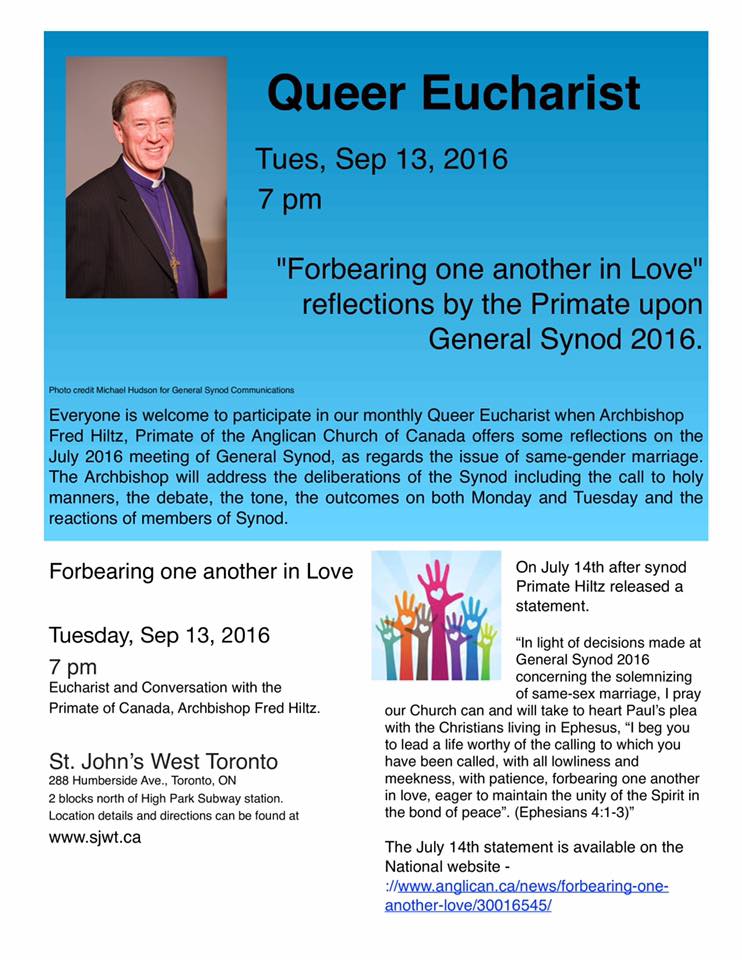The battle for same-sex marriage is as good as over in the ACoC. For the canons to be changed, it still has to pass the 2019 general synod but that is largely irrelevant since bishops – like Niagara’s Bird – who want to perform same-sex marriages have decided to do so now, voting be damned. As the bishops are quick to point out, there is nothing and no-one to stop them.
Now that’s over, there is new ground to conquer so the Diocese of Toronto has a church that has concocted a sex-change liturgy. And why not? There is nothing and no-one to stop them.
From here (page 10):
Church creates liturgy for gender transition
THE church has always gathered as a community to mark the most important life passages of its members, so when Beck Schaefer, a member of St. Stephen-in-the-Fields, Toronto, legally transitioned from female to male, changing his name and identity documents to reflect a truer sense of his identity, the parish witnessed and blessed the moment.
However, a liturgy for that purpose doesn’t exist in the Anglican Church, so the parish created one. “We understood that this wasn’t a re-baptism,” said the Rev. Maggie Helwig, incumbent. “God always knew who Beck was in his fullness, and received him as himself from the beginning. But we also knew that this was a moment closely tied to the baptismal covenant, and Beck’s growth as a disciple.” The liturgy was modelled on the Anglican Church’s reaffirmation of baptismal vows, but also included an acknowledgement of Beck’s new name and gender identity as a part of his baptismal vocation.
“God created me transgender, and calls me to live openly and authentically,” said Beck at the service. “This is not a solitary path but rather a call that I am to live out in relation to others and as a member of the body of Christ.”



